Daily Life Impacts of Social Media and Mental Health
Social media sites like Facebook, Instagram, TikTok, X (formerly Twitter), and Snapchat have become essential components of everyday life in the digital age. They provide channels for self-expression, education, entertainment, and communication to billions of users worldwide. But worries about social media’s effects on mental health are growing along with its use. This article examines the advantages and possible drawbacks of social media use in relation to mental health.
The Rise of Social Media

Social media has changed how people interact over the last 20 years. Relationships can now be maintained in real time across continents by sharing personal updates and uploading photos. Over 5 billion people use social media globally, logging on for an average of 2.5 hours every day, according to a 2024 report by Data Reportal.
Many people, particularly those in younger generations, view social media as a way of life rather than merely a tool. However, society is still learning to comprehend the psychological difficulties that come with constant connectivity.
Positive Effects of Social Media on Mental Health
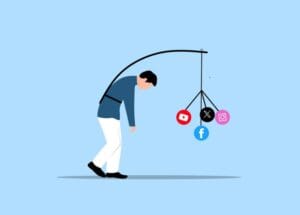
Even though social media is frequently criticized, when used responsibly, it can have a number of positive effects on mental health:
Relationship and Assistance
People can find and create communities on social media, which is especially helpful for people who feel alone in their offline lives. There are advocacy pages, support groups, and forums for people dealing with mental health concerns where they can feel less alone and more heard.
Awareness of Mental Health
Discussions about mental health have become more commonplace due to the growth of advocates, therapists, and influencers on social media sites like Instagram and TikTok. This normalization can encourage people to seek professional help and lessen stigma.
Individual Expression and Originality
Websites that allow for creativity and individual expression include Pinterest, YouTube, and even Twitter. Creative pursuits can elevate mood, lessen anxiety,
The Dark Side: Negative Impacts on Mental Health
Social media can be a source of connection and support, but it also carries risks that can harm mental health, particularly in teens and young adults.
Problems with Self-Esteem and Comparison
One of the most well-established consequences of social media is the tendency of its users to compare themselves to others. Posts that are carefully chosen have the potential to set unattainable ideals for happiness, success, and beauty. This can eventually result in body dissatisfaction, low self-esteem, and feelings of inadequacy.
FOMO, or the fear of missing out
The fear that others are enjoying fulfilling experiences without you is known as FOMO. Social media’s constant display of other people’s lives, trips, events, and accomplishments exacerbates this fear. Loneliness, envy, and even depression may result from this.
Online harassment and cyberbullying
Social media anonymity can encourage negative behavior. The issue of cyberbullying is becoming more widespread, especially among teenagers. In extreme situations, victims may have suicidal thoughts in addition to anxiety and depression.
Addiction and Poor Sleep
Social media sites are made to be compulsive. Notifications, algorithm-driven content, and endless scrolling can all contribute to compulsive use. This can cause stress and anxiety, interfere with sleep cycles, and lower productivity.
Social Media and Teen Mental Health

Being among the most frequent users of social media, teenagers are especially susceptible to its negative effects. Adolescents’ developing brains can be shaped by negative online experiences, which can also influence coping strategies and self-perception.
Adolescents who use social media extensively are more likely to experience anxiety, depression, and even suicidal thoughts, according to studies. This does not, however, imply causation. This intricate relationship is influenced by a number of factors, including exposure to harmful content, sleep deprivation, and cyberbullying.
How to Use Social Media in a Healthy Way
Most people can’t avoid social media completely, but there are ways to use it more carefully and safeguard their mental health.
Establish Time Limits
To monitor and restrict screen time, use apps or phone settings. Digital fatigue can be lessened and better sleep can be achieved by taking breaks, particularly in the evening.
Take Care of Your Feed
Follow accounts that encourage, inform, or inspire. Profiles that cause anxiety, comparison, or negativity can be unfollowed or muted.
Take Part in Purposeful Activities
Message friends, leave a comment, or share insightful content to actively participate instead of just passively scrolling. Your experience can be improved through high-quality interactions.
Discuss It
Speak with a friend, parent, or mental health professional if social media is making you feel overwhelmed. The first step to change is awareness.
The Role of Social Media Companies

It is partially the duty of social media companies to make online spaces safer. Some platforms have implemented measures like: Providing tools for managing screen time
- Keeping “like” counts hidden to ease pressure.
- Identifying and eliminating harmful content.
- promoting resources for mental health.
Critics counter that more needs to be done to safeguard users who are more susceptible, particularly kids and teenagers. The design of ethical algorithms, improved content moderation, and transparency are important areas for development.
When to Seek Help
Seeking professional assistance is crucial if you or someone you know is dealing with mental health issues that are made worse by social media. Some warning indicators are:
- Sustained melancholy or despair.
- Absence of enthusiasm for activities.
- Withdrawal from family and friends.
- Disturbances in sleep.
- Suicidal or self-harming thoughts.
Conclusion
Social media is an effective tool that can inspire, connect, and support people, but when used carelessly or excessively, it can also be harmful. People can achieve a healthy balance in their digital lives by being aware of the risks to their mental health and using technology with awareness.
Redefining how we engage with social media is more crucial than ignoring it entirely. Making mental health a top priority, establishing limits, and promoting candid discussions can all contribute to a safer and healthier online environment.

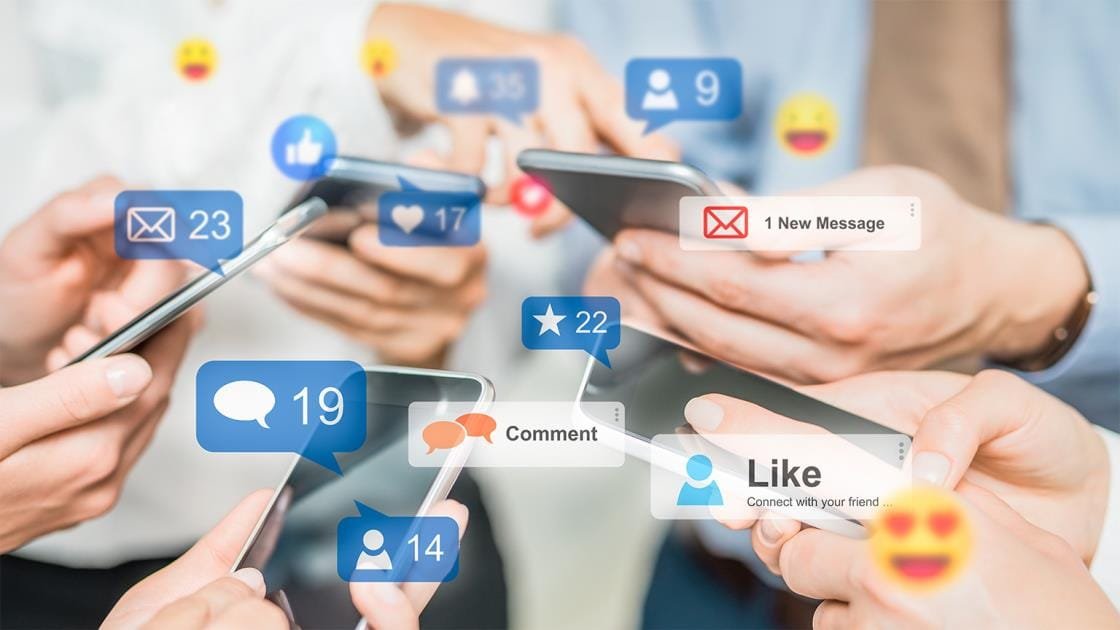
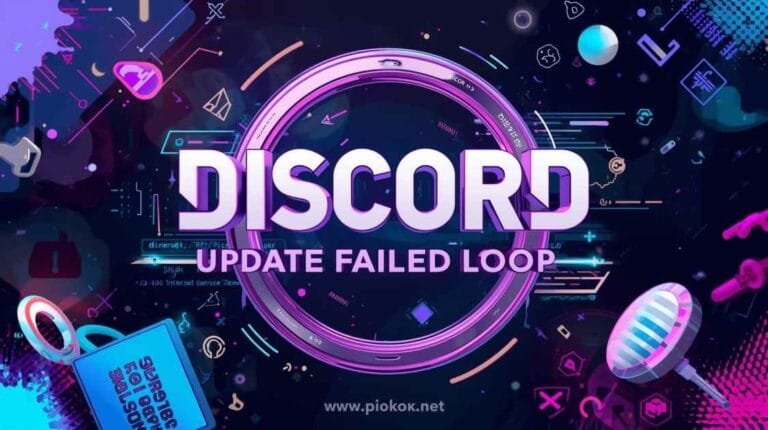
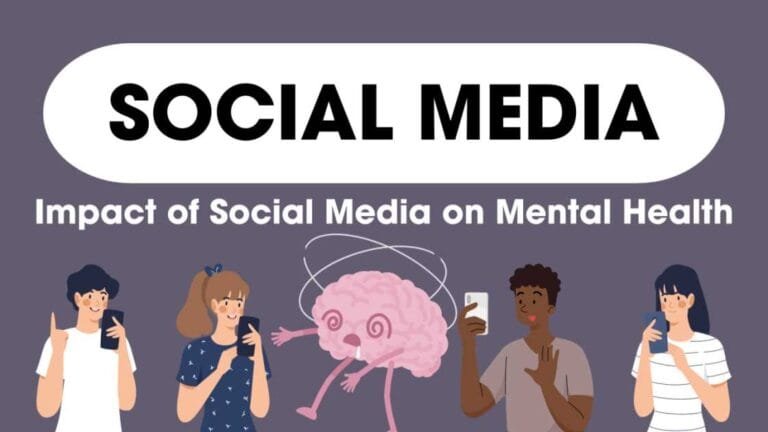
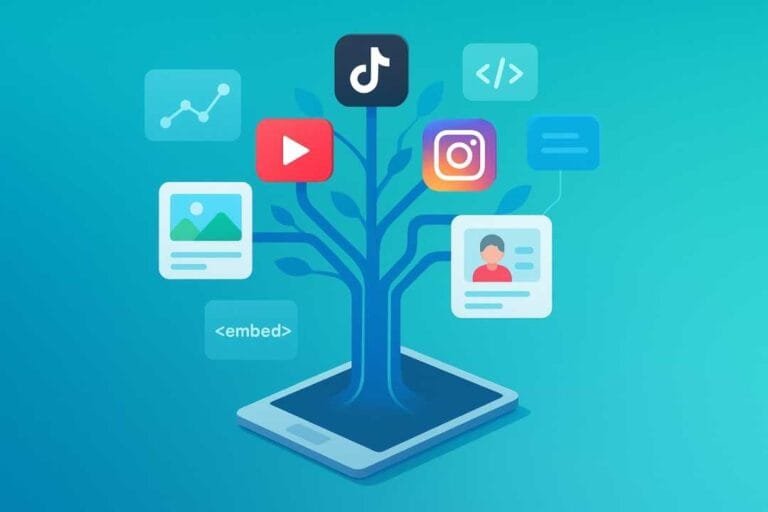
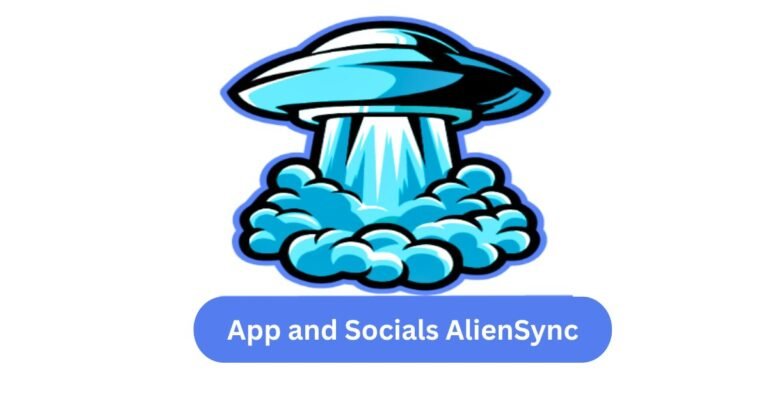

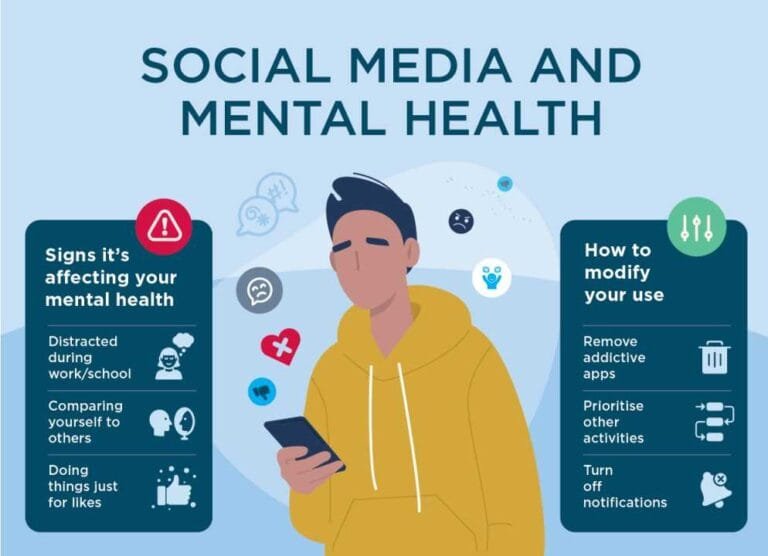
11 Comments